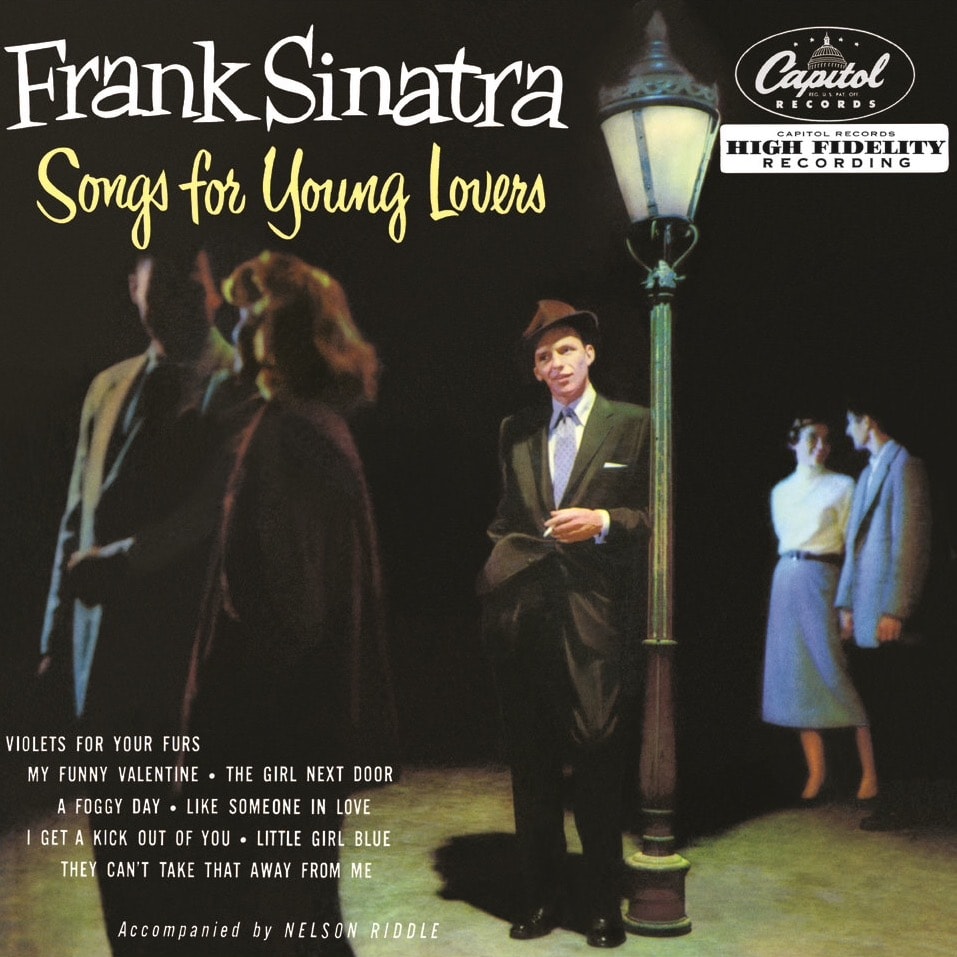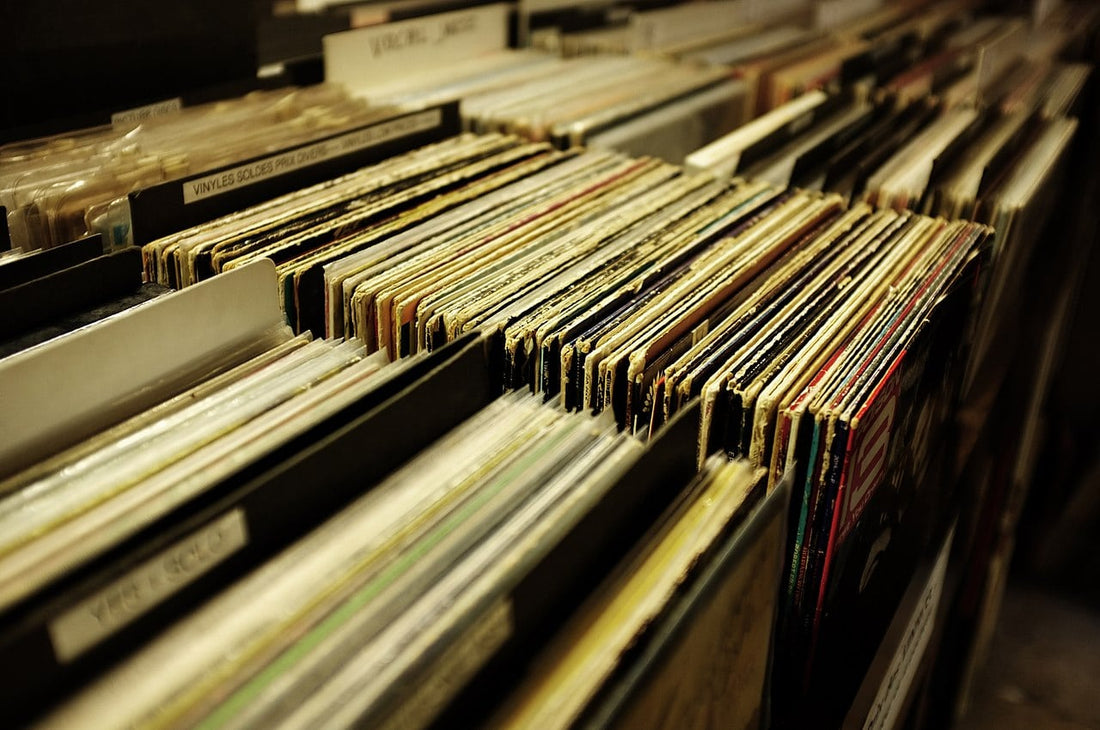I never really gave much thought to Record Store Day, other than to see it mentioned on the internet here and there over the years, and eventually I would become familiar with the day and its importance. My opinion of the event has changed over the years. How? Read on.
For those who are not familiar, Record Store Day is (in normal times) a Saturday in mid-April where record lovers converge on record stores around the world to buy records, support these brick and mortar businesses, and socialize with other music fans. RSD has grown to include a second, smaller day over the US Thanksgiving holiday that coincides with Black Friday. (In these crazy times of ours, the April RSD was canceled and eventually moved to three dates: August 29, September 26 and October 24.) The first Record Store Day event was in 2008.
So, how and why has my opinion changed? What could possibly be bad about a day where record stores get added attention from record buyers around the world? Brick and mortar record stores are a dying breed, primarily the domain of independent owners these days, and they can use all the promotion they can get. Not only that, record labels began trickling out unique releases for the day, to where it is now a flood. Good for the stores and the labels, right?
Well…
It took two events for me to realize that perhaps Record Store Day was not for me. The first event was attending one in person, with a front row seat to the chaos of a typical Record Store Day.
I arrived and met a friend of mine outside the store. We had to line up and wait our turn to enter the store. Upon entering, much of the store was roped off – we had to follow a pre-defined path past all the RSD releases displayed in bins attached to the wall. Once we passed through the new-release gauntlet, we were free to browse the store and pick out anything else we wanted, provided we could navigate the crowd in the store. Our “reward” for our purchases was standing in two long lines that stretched clear to the back of the store and started doubling back on themselves toward the front. To their credit, they were double-staffed at the counter and the checkouts went smoothly and quickly.
 Record Store Day 2014, Dusty Groove Records, Wicker Park, IL. Image courtesy of Wikimedia Commons/Dusty Groove.
Record Store Day 2014, Dusty Groove Records, Wicker Park, IL. Image courtesy of Wikimedia Commons/Dusty Groove.
That was my first and last Record Store Day. To add insult to injury, the store had an “absolutely no returns whatsoever” policy on RSD purchases, and one of the three I picked out was defective. It goes without saying that I’ve never set foot in that store ever again. And I’ve never attended another Record Store Day event.
Sour grapes after only one attendance? There is more to it than that.
For the Record Store Day events since then, I’ve perused the lists of RSD releases multiple times, hoping I haven’t missed anything I might want. The more I look at the lists, the more I realize that so many of these releases seem to fall into familiar categories. There are the reissues of long-out-of-print albums, singles and EPs, some in alternate versions than what we are familiar with (alternate mixes, bonus content, etc.). There are the “bottom scrapings,” as I call them, which are unreleased tracks from the studio that were obviously not on the finished albums for a reason. There are live performances, many of which are not all that different from what was already out there, and were likely never released in the past for a reason. And novelty releases. Seriously, as much as I like Toto’s hit “Africa,” do I really need an Africa-shaped picture disc of it?

Not only that, my musical interests fall outside rock/pop music most of the time, so most of the titles are irrelevant for me. As for jazz, very few of the titles available (of which there are fewer in number) are of interest to me, so that compounds the issue. Beyond that, I don’t believe I’ve ever seen a classical title released, or much of anything else besides rock, pop and jazz (other than the occasional soundtrack album). In short, if they want to maintain the interest of all music lovers inclusively, their tunnel vision is not doing buyers like me any favors.
After a couple of years of perusing these painfully long release lists to see if there was anything that I was missing (there usually wasn’t), I began feeling as though RSD had lost its way. What was originally a boost to the record stores was hijacked by the record labels, in my eyes.
The interesting side of all this? In the years since my one and only visit, I have been able to find anything I have wanted online, with no chaos, at a lower price than what the record stores were originally charging. A couple of titles, in fact, surprised me in that they were RSD releases – I didn’t find out until they arrived with RSD hype stickers on the shrink wrap. So much for the hyped-up “rarity” of RSD releases.
What also appalled me were some of the prices on items I had considered buying. There was a 7-inch 45 RPM single I had an eye on. OK, maybe I’d pay $3 – $4 for it. I get up to the rack and it’s $9. Seriously? Pass. An anthology by an artist I had a passing interest in was near $40 for a 2-LP set…and it was not an audiophile release by any means. Just a reissue of what was already on CD for years. Pass. I did pick up a mono version of an album for a friend on the east coast, and that was fairly priced. The 12-inch EP I bought was also not too out of line, but the 10-inch LP reissue (Sinatra’s Songs for Young Lovers) was out of line for what it was. (And that was the defective record I purchased that day; my replacement copy, which is flawless, cost far less from an online seller. In that case, the alleged “rarity” is what made me buy that original flawed copy, thinking I might not see another one.)

To add insult to injury, many of the items purchased at already inflated prices are flipped within hours online at much higher prices – you see plenty of these listed on eBay and Discogs. Those who have good connections (read: frequent customers) at some of the record stores can get preferential treatment and get the titles they want set aside for them.
The event has also turned into a feeding frenzy. I’ve seen friends of mine, who already have sizeable record collections, purchase two or three dozen titles on Record Store Day. A couple of them have a backlog of dozens upon dozens of records they’ve purchased in the past that they’ve never even opened or played. It would be interesting to see how many of these releases they played more than once, if that. To put it into perspective, I probably bought fewer records (LPs) in all of 2019 than some pals spent on one single Record Store Day.
I don’t exactly hate Record Store Day, but I don’t like the direction it has taken. What was ever wrong with having a day with maybe a dozen or two high-profile new releases as an added perk to accompany music lovers converging on the store and buy up some of their existing inventory the process? Record collecting is as much about the community and hanging out with like-minded enthusiasts as it is the acquisition of new records to listen to. Record labels, especially the majors, are feeding into this frenzy in a big way and overfeeding the fish at any chance they can. When Big Money gets involved, the fun goes out of it. Many of the releases I’ve seen listed are titles that just about all of us could have lived without.
Why can’t the stores have a Saturday every month where they offer a few deals and host a special event to treat their loyal customers and draw in new ones, without having to worry about juggling hundreds of new titles and the customers frantically grabbing them before they sell out?
I certainly don’t mean to take anything away from these record stores either. Business can be so sporadic these days that all it takes is a family illness or a rent hike to put a store out of business. Especially in these times we live in, where local mandates often force stores to close to the public for extended periods of time, we must do all we can to support them if we want to continue having places to shop for records where we can browse through the bins.
Most importantly, there is a Record Store Day organization that tirelessly promotes all these independent record stores throughout the year. They are the element in this which we all need to be thankful for, even if we do not take part in the RSD events each year.
Personally, though, I am done with Record Store Day. My idea of visiting a record store is to leisurely browse through bins like we all used to do back in the 1960s, 1970s and 1980s. I also feel those of us who still buy records should be supporting our stores throughout the year, not just on a single day with the Black Friday mentality at the back of every shopper’s mind, and perhaps the record labels should be doing the same to spread the business out for these independent merchants. For those who enjoy it? Feel free. Go out and enjoy yourselves. I’m just one less person in your way to the register at the front of the store, and have a few more dollars in my pocket for the titles I really want to purchase.
Header image courtesy of Wikimedia Commons/Mr. Cup/Fabien Barral.



